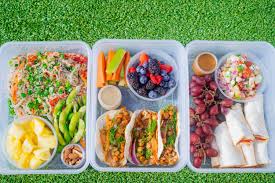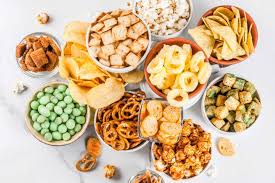Health
Embracing the Best Organic Practices for a Healthier, Sustainable Lifestyle

Embracing the Best Organic Practices for a Healthier, Sustainable Lifestyle
In a world increasingly concerned with health, sustainability, and environmental impact, many individuals are turning toward best organic practices to live more mindfully. From agriculture to skincare, from home gardens to our children’s diets, organic solutions offer a path to cleaner, greener living. Let’s dive deep into the core elements of organic living, explore essential techniques, and highlight the benefits of organic food for children, among other key topics.
Why Choose Organic?
The term organic goes beyond a trendy label. It reflects a commitment to avoiding synthetic chemicals, genetically modified organisms (GMOs), and harmful farming methods. The best organic practices center on sustainability, biodiversity, and health. These methods improve soil quality, reduce pollution, and result in products that are safer for human consumption.
When comparing organic farming vs. hydroponics, for instance, organic farming emphasizes natural soil fertility, while hydroponics relies on nutrient solutions in water. Though hydroponics may save space and water, organic farming techniques promote ecological balance and preserve local biodiversity.
Related Keywords (used 3x):
natural alternatives
chemical-free solutions
sustainable agriculture
Mastering Organic Farming Techniques
A crucial component of organic living is adopting effective organic farming techniques. These practices include crop rotation, green manure, biological pest control, and use of organic composting methods. By avoiding synthetic fertilizers and pesticides, farmers protect the health of both consumers and the environment.
Some of the best organic practices in farming involve working with nature—encouraging pollinators, using organic fertilizer for tomatoes, and fostering beneficial soil microbes. For those with limited space, organic farming for small spaces is also gaining popularity, using containers, vertical gardens, and companion planting.
With climate change impacting global agriculture, the link between organic farming and climate change is vital. Organic methods sequester more carbon in soil and emit fewer greenhouse gases, making them a key part of the climate solution.
Benefits of Organic Food for Children
One of the most compelling reasons families shift to organic is the benefits of organic food for children. Since children are more vulnerable to pesticide exposure due to their developing bodies, organic produce, dairy, and meats offer peace of mind.
The benefits of organic food for children include:
Reduced pesticide intake
Lower antibiotic and hormone exposure
Nutrient-rich fruits and vegetables
Fewer allergens in processed food
Stronger immune systems due to cleaner diets
Parents often start with simple swaps, like introducing organic fruits for weight loss or healthy snacks. These not only support child growth but also contribute to better long-term health habits.
Starting Out: Organic Gardening Tips for Beginners
Even if you’re not a full-time farmer, you can still apply best organic practices in your own backyard or balcony. These organic gardening tips for beginners are perfect for those new to the green world:
Start with the soil – Use natural compost to enrich your garden.
Choose native plants – They require less maintenance and resist pests better.
Avoid synthetic pesticides – Try neem oil, garlic spray, or other chemical-free solutions.
Mulch regularly – This helps retain moisture and suppress weeds.
Rotate your crops – Prevent soil depletion and pest cycles.
Following these organic gardening tips for beginners makes gardening more rewarding and safe for the whole family.
The Power of Organic Composting Method
Healthy soil is the foundation of all organic growing efforts. That’s why learning an organic composting method is essential. Composting transforms kitchen and garden waste into rich soil amendments, reducing landfill usage and nourishing crops.
A reliable organic composting method includes:
Collecting kitchen scraps (vegetables, eggshells, coffee grounds)
Balancing “greens” (nitrogen-rich) and “browns” (carbon-rich)
Aerating the pile regularly
Monitoring moisture levels
Whether you’re farming or gardening, an effective organic composting method supports soil health and enhances productivity.
Organic Fertilizer for Tomatoes: A Garden Essential
Tomatoes are a favorite in most home gardens and farms. However, they’re nutrient-hungry and require the right kind of fertilizer. That’s where organic fertilizer for tomatoes shines.
Instead of chemical feeds, consider these organic fertilizer for tomatoes options:
Aged compost
Worm castings
Fish emulsion
Bone meal
Seaweed extract
These options are rich in potassium and phosphorus, crucial for fruit development. Using organic fertilizer for tomatoes not only enhances flavor but also aligns with the best organic practices of nurturing plants naturally.
Organic Skincare: Nature’s Gift to Your Skin
Our skin is our largest organ, and what we put on it matters. The shift toward best organic skincare products is a reflection of the desire to live cleaner and avoid harsh synthetics.
Common ingredients in best organic skincare products include:
Aloe vera
Coconut oil
Shea butter
Essential oils
Green tea extract
The best organic skincare products are often cruelty-free, non-GMO, and use natural alternatives for preservatives and fragrances. They work with your skin, not against it, offering long-term benefits without side effects.
Organic Fruits for Weight Loss
Choosing organic fruits for weight loss is another smart move in a health-conscious lifestyle. These fruits are free from chemical residues and offer high fiber, vitamins, and antioxidants—without empty calories.
Top organic fruits for weight loss include:
Apples (rich in fiber)
Blueberries (antioxidant-packed)
Grapefruit (boosts metabolism)
Watermelon (hydrating and filling)
Avocados (healthy fats)
Not only do organic fruits for weight loss support fat burning, but they also reduce toxin exposure—a win-win for dieters and detoxers alike.
Organic Farming vs. Hydroponics: Which Is Better?
As technology evolves, organic farming vs. hydroponics becomes a hot debate. Hydroponics, the soilless cultivation of plants in nutrient-rich water, promises fast growth and water efficiency. However, organic farming techniques bring long-term soil enrichment, carbon sequestration, and ecosystem preservation.
Key differences:
Organic farming vs. hydroponics: Soil-based vs. water-based
Organic farming vs. hydroponics: Biodiversity-focused vs. tech-intensive
Organic farming vs. hydroponics: Better for soil vs. better for urban farms
Though hydroponics can be sustainable, purists argue it lacks the full spectrum of organic benefits—especially concerning microbial life and nutrient diversity.
Thriving in Small Spaces: Organic Farming for Small Spaces
City dwellers and urbanites rejoice—organic farming for small spaces is not only possible, but thriving. You can follow best organic practices even with a tiny balcony or patio.
Ideas for organic farming for small spaces:
Hanging baskets for herbs
Vertical planters for leafy greens
Window boxes for strawberries
Raised beds for compact crops
DIY composting bins
Whether you’re growing microgreens or mini tomatoes, organic farming for small spaces is perfect for sustainable city living and supports food independence.
Organic Farming and Climate Change
The intersection of organic farming and climate change is perhaps the most critical. Conventional agriculture is a major contributor to global emissions, while organic methods reduce the carbon footprint significantly.
How organic farming and climate change are linked:
Organic soil stores more carbon
Natural fertilizers reduce nitrous oxide emissions
Cover crops and crop diversity help fight erosion
Fewer fossil fuels are used
Supports wildlife and pollinators
By embracing best organic practices, we’re not just improving our diets—we’re healing the Earth.
Conclusion: Choose Organic, Live Organic
From skincare to farming, from child nutrition to climate action, the benefits of adopting best organic practices are undeniable. Whether you’re experimenting with organic gardening tips for beginners or analyzing organic farming vs. hydroponics, the key is to act intentionally and sustainably.
Organic living doesn’t have to be overwhelming. Start small. Pick up the best organic skincare products, switch to organic fruits for weight loss, or try your hand at a simple organic composting method. Each step you take contributes to your health and the planet’s well-being.
So go ahead—choose organic, live organic, and thrive with nature.

Food
Why is Gardening So Relaxing? The Secret Behind Nature’s Therapy

Why is Gardening So Relaxing? The Secret Behind Nature’s Therapy
If you have ever asked yourself “Why is gardening so relaxing?”, you are not alone. Millions of people across the world have discovered the peace, joy, and satisfaction that comes from tending to plants, watching flowers bloom, or simply digging in the soil. But what makes this activity so therapeutic? Science and psychology both point to fascinating answers that explain why gardening is relaxing, how gardening reduces stress, and why gardening is so satisfying.
Why is Gardening So Relaxing?
One of the most common questions is “Why is gardening so relaxing?”. The answer lies in the combination of physical activity, fresh air, sunshine, and the calming effect of nature. Studies have shown that exposure to green spaces lowers cortisol levels—the hormone responsible for stress—making people feel calmer and happier. This explains why gardening is calming and why many consider it an effective stress management practice.
How Gardening Reduces Stress Naturally
Another big benefit is how gardening reduces stress. Whether it’s planting vegetables, trimming roses, or watering herbs, these small acts require mindfulness. When you focus on the present moment, your mind shifts away from daily worries. That’s why many psychologists recommend gardening as a natural therapy. The repetitive, soothing tasks explain why gardening is relaxing and also why gardening is amazing for mental health.
Why is Gardening So Satisfying?
People often wonder, “Why is gardening so satisfying?” The sense of achievement is one of the biggest reasons. Watching seeds grow into beautiful plants gives a feeling of accomplishment. You get to nurture life, and this responsibility brings deep emotional satisfaction. This is another explanation of why gardening is relaxing, since fulfillment and pride play key roles in overall well-being.
Why is Gardening Calming for the Mind?
So, why is gardening calming? Beyond the science of stress reduction, gardening connects humans with nature in a unique way. Breathing fresh air, feeling the soil, and enjoying colorful blooms activate the brain’s relaxation response. This helps balance emotions, lowers anxiety, and even improves sleep quality. It’s no surprise that so many say gardening is amazing.
Does Gardening Reduce Stress in Daily Life?
Many ask, “Does gardening reduce stress?” The answer is a resounding yes. Research shows that just 20 minutes of gardening can improve mood and lower anxiety. Unlike other activities, gardening combines movement, creativity, and nature exposure, all of which help explain why gardening is relaxing.
Gardening is Amazing: Benefits Beyond Relaxation
People often say gardening is amazing not only because it relaxes the mind, but also because it improves physical health. Digging, planting, and carrying pots are forms of low-impact exercise, which help strengthen muscles and improve flexibility. This physical activity, combined with mental relaxation, reveals both why gardening is calming and why gardening is so satisfying.
Why Gardening is Relaxing for Different Ages
Another reason why gardening is relaxing is its universal appeal. Children enjoy playing with soil, adults find joy in maintaining plants, and seniors benefit from the soothing nature of gardening. For every age group, the benefits of how gardening reduces stress remain consistent. That’s why people across generations agree that gardening is amazing.
Why is Gardening So Relaxing? A Spiritual Connection
For some, why gardening is relaxing has a spiritual explanation. Being surrounded by plants gives a feeling of closeness to nature and life itself. Many gardeners say they feel grounded, connected, and even more grateful for the simple things. This deeper perspective explains why gardening is calming and why gardening is so satisfying at a soul level.
Final Thoughts: Why is Gardening So Relaxing?
So, why is gardening so relaxing? The answer is clear—it combines stress reduction, physical activity, mindfulness, and emotional satisfaction. When you see how quickly and effectively gardening reduces stress, you understand why gardening is calming. Add to that the joy of creation and fulfillment, and you realize why gardening is so satisfying.
In the end, it’s safe to say gardening is amazing, not only for mental health but also for happiness, peace, and balance in life.

Fitness
Vegan Meal Prep Ideas for a Healthy, Affordable, and Stress-Free Week

Vegan Meal Prep Ideas for a Healthy, Affordable, and Stress-Free Week
If you’re looking to save time, eat healthier, and cut down on stress, diving into vegan meal prep ideas is the way to go. Prepping meals ahead of time not only keeps you consistent with your health goals but also makes plant-based eating simple and affordable. Whether you’re new to meal prepping or a seasoned pro, this guide will help you with vegan meal prep recipes, tips, and hacks to make your week smooth and delicious.
Why Try Vegan Meal Prep?
Meal prepping is a game-changer for anyone with a busy lifestyle. With the right vegan meal prep ideas, you’ll enjoy:
Consistency: Sticking to healthy meals without last-minute takeout temptations.
Savings: Mastering cheap vegan meal prep means eating well without breaking the bank.
Time efficiency: A few hours on the weekend saves countless hours during the week.
Variety: Using creative vegan meal prep recipes ensures you won’t get bored.
Easy Vegan Meal Prep Ideas to Try
Here are some easy vegan meal prep strategies you can start using right away:
Batch Cooking Grains & Legumes
Cook quinoa, rice, lentils, and beans in bulk. These staples are the backbone of most vegan meal prep ideas and pair well with veggies, sauces, or salads.
Roast a Tray of Vegetables
Sweet potatoes, broccoli, carrots, and zucchini make versatile additions to any dish. This is a must for easy vegan meal prep because roasted veggies reheat beautifully.
Overnight Oats & Chia Pudding
Breakfast sorted! These quick vegan meal prep recipes give you grab-and-go options that are filling and nutritious.
Homemade Sauces & Dressings
A creamy tahini dressing or spicy peanut sauce turns the simplest bowl into a gourmet meal. Having sauces ready enhances all your vegan meal prep ideas.
Cheap Vegan Meal Prep Tips
Many people think eating plant-based is expensive, but cheap vegan meal prep proves otherwise. Here’s how:
Buy beans, lentils, and grains in bulk.
Use seasonal vegetables for your vegan meal prep recipes.
Plan meals around versatile ingredients like chickpeas and tofu.
Repurpose leftovers to create multiple vegan meal prep ideas with minimal effort.
By planning smart, cheap vegan meal prep keeps your grocery bill low while giving you endless variety.
5 Delicious Vegan Meal Prep Recipes
Here are some simple and tasty vegan meal prep recipes you can batch cook:
Chickpea Salad Wraps – Protein-packed and perfect for lunchboxes.
Lentil Curry with Rice – A staple in easy vegan meal prep that freezes well.
Roasted Veggie Buddha Bowls – Colorful and customizable with your favorite grains.
Black Bean Chili – Great for dinner and excellent for cheap vegan meal prep.
Tofu Stir-Fry with Brown Rice – Quick, filling, and a go-to for busy nights.
Each of these meals highlights how vegan meal prep ideas can be flavorful, budget-friendly, and incredibly satisfying.
How to Stay Motivated with Vegan Meal Prep
Rotate your favorite vegan meal prep recipes weekly to keep things fresh.
Store meals in clear containers so you can “see” your options.
Mix and match proteins, veggies, and grains for endless vegan meal prep ideas.
Remember: easy vegan meal prep works best when you start small and build habits gradually.
Final Thoughts
Exploring different vegan meal prep ideas makes it simple to stick to your health goals while saving time and money. From quick breakfasts to hearty dinners, there’s no shortage of vegan meal prep recipes to keep your week exciting. Whether you’re aiming for easy vegan meal prep to save time or focusing on cheap vegan meal prep to stretch your budget, the possibilities are endless.
Start small, experiment with flavors, and before you know it, you’ll master the art of vegan meal prep. With a little planning, these vegan meal prep ideas will help you eat better, save money, and live healthier—all while enjoying every bite.

Food
The Ultimate Guide to Plant Based Snacks for a Healthy Lifestyle

The Ultimate Guide to Plant Based Snacks for a Healthy Lifestyle
If you’re looking for delicious, nutritious, and satisfying plant based snacks, you’re in the right place. With the rising popularity of healthier eating habits, people are searching for the best plant based snacks that are easy, tasty, and packed with nutrients. Whether you want something quick for work, fun ideas for kids, or high protein plant based snacks, this guide covers everything you need.
Why Choose Plant Based Snacks?
The demand for healthy plant based snacks is growing as more people shift toward sustainable, whole-food diets. Unlike processed junk food, whole food plant based snacks are made from nuts, seeds, fruits, vegetables, and grains, which provide energy without unnecessary additives.
Brands like Back to Nature plant based snacks have made it easier than ever to grab wholesome options when life gets busy. Whether you’re shopping at Whole Foods plant based snacks aisles or making your own at home, there’s no shortage of choices.
Top Benefits of Plant Based Snacks
Nutrient-Rich – Healthy vegan plant based snacks are packed with fiber, vitamins, and minerals.
Protein-Packed – With high protein plant based snacks, you can fuel workouts and stay full longer.
Family-Friendly – There are plenty of fun and delicious plant based snacks for kids that even picky eaters will love.
Convenient – Plant based snacks on the go are perfect for travel, office, or school lunches.
Sustainable – Choosing nature plant based snacks supports eco-friendly living.
Easy Plant Based Snack Ideas
Looking for inspiration? Here are some quick plant based snacks ideas you can try today:
Roasted chickpeas (great plant based snacks for work)
Apple slices with almond butter (easy plant based snacks)
Trail mix with nuts, seeds, and dried fruit (instant healthy plant based snacks)
Veggie sticks with hummus (plant based snacks recipes)
Energy balls made with oats and dates (whole food plant based snacks)
These options are versatile, portable, and perfect as plant based snacks on the go.
The Growing Plant Based Snacks Market
The global healthy plant based snacks market is expanding rapidly, with new innovations hitting shelves every year. From protein bars to chips and cookies, the variety of best plant based snacks has never been greater. Consumers are not only looking for flavor but also sustainability, making back to nature plant based snacks and other eco-conscious brands top choices.
Plant Based Snacks for Every Lifestyle
For Work: Keep plant based snacks for work like trail mix or roasted edamame at your desk.
For Kids: Fun and colorful plant based snacks for kids like fruit kabobs or mini veggie wraps make healthy eating exciting.
For Busy Days: Stock up on instant healthy plant based snacks like bars or nut packs.
Final Thoughts
Incorporating plant based snacks into your routine is one of the easiest ways to eat healthier without sacrificing taste. Whether you prefer whole food plant based snacks, store-bought options like Back to Nature plant based snacks, or homemade plant based snacks recipes, there’s something for everyone.
As the healthy plant based snacks market continues to grow, the possibilities are endless. So next time you need a quick bite, skip the junk food and reach for the best plant based snacks—your body and the planet will thank you.

-

 Business6 months ago
Business6 months ago☕️The Ultimate Coffee Lover’s Guide: From Caffeine in a Cup of Coffee to Turkish Coffee Delights
-

 Business6 months ago
Business6 months agoIn today’s fast‑moving economy, what industry is slowly dying and why?
-

 Lifestyle6 months ago
Lifestyle6 months ago🐦 The Ultimate Bird Watching Guide: Best Birdwatching Locations & Tips for Beginners
-

 Business6 months ago
Business6 months agoThe Many Faces of “Future”: Markets, Farming, Music, AI, and a Better Tomorrow
-

 Entertainment5 months ago
Entertainment5 months agoBlack Phone 2′ Cast Revealed: 5 Stars Return, 5 Actors Join & 1 Star Exits
-

 Tech6 months ago
Tech6 months agoUltimate Secret Android Apps You’ll Actually Love
-

 Health6 months ago
Health6 months agoA Journey Through Life’s Firsts: Health, Gaming, and Experiences That Shape Us
-

 Lifestyle6 months ago
Lifestyle6 months agoWhat is life Philosophy?



